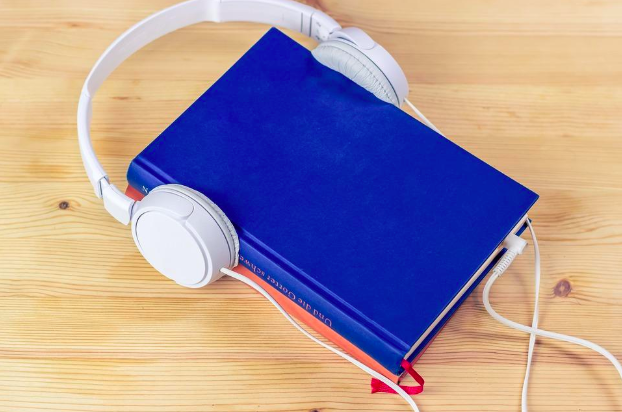Language is such an essential part of every aspect of our lives that we experience a range of negative emotions and experiences when we find it difficult to communicate. For people with dyslexia, traumatic brain injuries, or other barriers to usual communication, being unable to communicate in the same way as others can understandably lead to depression and other mental health problems.(1) For students with dyslexia, grades and self-esteem can suffer, as well as the general enjoyment of reading.
Recently, scientists uncovered a new way to potentially help these kinds of individuals — thanks, surprisingly, to audiobooks.
Using Audio to Map the Brain
Neuroscientists at the University of California, Berkeley, released the findings of their latest brain mapping study in the Journal of Neuroscience last month. The researchers have been creating maps of the brain in an attempt to understand where the brain categorizes the words used in language, such as numbers and places.(2) For this current study, the neuroscientists used an MRI machine to scan both the brains of people listening to stories on a podcast and the brains of people reading the same stories that were featured on the podcast. Afterwards, they made 3-D, interactive maps that used color coding to show what areas of the brain were stimulated by certain word categories. The maps from both groups of people were unexpectedly almost identical.(2)
This finding means that, whether language material is read or heard, our brains appear to process that information in virtually the same way. You can even view the fascinating maps here.
What Does This Mean for Conditions Affecting Language?
Since the maps were so similar, it means we all seem to process written and spoken language in similar ways. With these maps, researchers were able to predict which parts of the brain would respond to a specific word. This could potentially lead to better therapies and understanding of what is happening in the brain after a traumatic injury or other damaging condition, as the injured person’s brain scan and language area activations could be compared to the scan of a person who has not suffered such an injury.(2)
The researchers also speculated that these maps could lead to unique interventions for people with dyslexia. The study’s lead author, Fatma Deniz, explained to Berkeley News, “If, in the future, we find that the dyslexic brain has rich semantic language representation when listening to an audiobook or other recording, that could bring more audio materials into the classroom.” Deniz predicted that the maps would also be helpful for people with auditory processing disorder.(3)
Bringing Audio Into the Home and the Classroom
For parents and teachers, this may mean that you can feel more comfortable introducing audiobooks and kid-friendly podcasts to your students. In fact, previous studies have found that students have better text comprehension when listening to literature as opposed to simply reading it alone.(4) This additional study offers more evidence that listening can be just as meaningful in communication settings as reading directly. Audiobooks may prove to be an excellent compliment to the provision of science-based reading instruction for those students struggling with dyslexia or other language-based learning differences.
Most of the popular books that would be read in a classroom are available on the many audiobook platforms, such as Audible or Kindle. High-quality podcasts, too, can be found on listening apps such as Spotify or Apple. For podcasts that entertain and inform, some favorite podcasts for kids and students (5) include:
Concerned About a Learning, Cognitive, or Neurodevelopmental Difference?
Our team at Neurobehavioral Associates provides comprehensive neuropsychological assessments to help guide children and adults. We can help you with IEP planning and refer you to any recommended additional services, such as psychiatric or educational tutoring providers. Explore our treatment services for more information on how Neurobehavioral Associates can assist you and your family or contact us today to schedule a consultation.
Resources:
- Morrison, M. (2016). I would tell you if I could: Language loss, depression, and the challenge of treating patients with aphasia. UBCMJ, 8(1), 42–43. Retrieved from http://med-fom-ubcmj.sites.olt.ubc.ca/files/2017/03/v8i1-commentary3.pdf
- Kopp, J. (2019, August 20). Reading and listening to books stimulates the same areas of the brain. Retrieved from https://www.phillyvoice.com/books-audiobooks-neuroscience-brain-reading-listening
- Anwar, Y., & Anwar, Y. (2019, September 4). A map of the brain can tell what you’re reading about. Retrieved from https://news.berkeley.edu/2019/08/19/readingbrainmap/
- Chang, A. C.-S., & Millett, S. (2014). © The Author 2013. Published by Oxford University Press; all rights reserved.The effect of extensive listening on developing L2 listening fluency: some hard evidence. ELT Journal by Oxford University Press, 68(1), 31–40. doi: 0.1093/elt/cct052
- Ucciferri, F. (2019, July 23). The 25 Best Podcasts for Kids. Retrieved from https://www.commonsensemedia.org/blog/the-best-podcasts-for-kids

